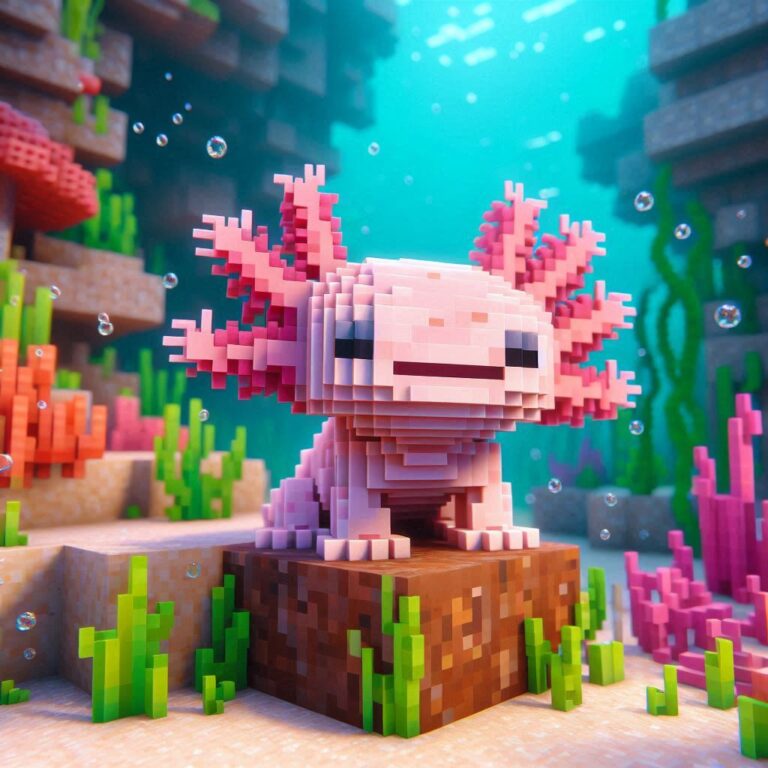
Axolotls can indeed eat mysis shrimp, but it’s essential to offer them as part of a balanced diet. Mysis shrimp are rich in protein and other essential nutrients, making them a suitable occasional treat for axolotls. However, relying solely on mysis shrimp can lead to nutritional deficiencies, so it’s crucial to diversify their diet with other foods like bloodworms, earthworms, and commercial axolotl pellets. Moderation is key when feeding axolotls mysis shrimp to avoid overfeeding and potential digestive issues. Overall, while mysis shrimp can be a beneficial addition to an axolotl’s diet, it should not be the sole source of nutrition.
What do Mysis Shrimp Do to the Axolotl
Mysis shrimp play a multifaceted role in the life of an axolotl, impacting everything from their nutrition to their behavior. These small crustaceans are not only a tasty treat for axolotls but also offer essential nutrients crucial for their overall health. When consumed, mysis shrimp provide a protein-rich meal that aids in muscle development and growth, helping axolotls thrive in their aquatic environment. Moreover, the act of hunting and consuming mysis shrimp can stimulate natural foraging instincts in axolotls, enriching their mental and physical well-being. However, it’s essential to monitor the quantity of mysis shrimp offered to axolotls to prevent overfeeding, which could lead to digestive issues. Overall, mysis shrimp serve as more than just a source of sustenance for axolotls; they contribute to their overall vitality and behavioral enrichment.
Impact on Digestion
The impact of mysis shrimp on axolotl digestion is a crucial aspect to consider when incorporating these crustaceans into their diet. While mysis shrimp are rich in protein and nutrients, they can also pose challenges to the axolotl’s digestive system if not fed in moderation. Overfeeding mysis shrimp can overwhelm the axolotl’s digestive tract, leading to issues such as bloating, constipation, or even gastrointestinal blockages. Therefore, it’s vital to strike a balance in feeding frequency and portion size to ensure optimal digestion. Additionally, offering a varied diet that includes other foods like bloodworms and earthworms can help prevent digestive issues and promote overall digestive health in axolotls. By carefully managing the intake of mysis shrimp, axolotl enthusiasts can support their aquatic pets’ digestive well-being and overall health.
Nutritional Benefits
Mysis shrimp offer a plethora of nutritional benefits for axolotls, making them a valuable addition to their diet. These small crustaceans are packed with protein, essential amino acids, vitamins, and minerals that are vital for axolotl growth, development, and overall health. Protein from mysis shrimp supports muscle growth and repair, ensuring that axolotls maintain strong and healthy bodies. Additionally, the vitamins and minerals found in mysis shrimp contribute to various physiological functions, such as immune system support, metabolism regulation, and overall vitality. Incorporating mysis shrimp into an axolotl’s diet provides a natural and nutritious food source that mimics their natural diet in the wild, promoting their well-being and longevity.
Behavioral Responses
Feeding axolotls mysis shrimp not only fulfills their nutritional needs but also elicits fascinating behavioral responses. Axolotls, with their keen senses and natural hunting instincts, often exhibit excitement and anticipation when presented with mysis shrimp. The sight and scent of these tiny crustaceans trigger hunting behavior, prompting axolotls to stalk, chase, and capture their prey with precision and agility. Engaging in these natural behaviors provides essential mental stimulation for axolotls, enriching their captive environment and overall well-being. Moreover, the act of hunting and consuming mysis shrimp satisfies their innate predatory instincts, promoting a sense of satisfaction and fulfillment. As such, offering mysis shrimp to axolotls not only nourishes their bodies but also nourishes their minds, contributing to their overall health and happiness in captivity.
Nutritional Value of Mysis Shrimp for Axolotls
Mysis shrimp stand as a nutritional powerhouse for axolotls, offering a diverse array of essential nutrients crucial for their health and vitality. These tiny crustaceans pack a punch with their balanced profile of protein, fats, vitamins, and minerals, making them an ideal component of an axolotl’s diet. Beyond mere sustenance, mysis shrimp contribute to the overall well-being of axolotls, supporting growth, immunity, and reproductive health. By understanding the specific nutritional components of mysis shrimp, axolotl enthusiasts can ensure their pets receive the necessary nourishment for optimal health and longevity.
When delving into the nutritional value of mysis shrimp for axolotls, it’s essential to consider their benefits alongside those of cherry shrimp. Mysis shrimp offer a rich source of protein and essential nutrients, contributing to the overall health and vitality of axolotls. Similarly, cherry shrimp provide nutritional value, containing vital nutrients that support axolotls’ well-being. Incorporating both mysis and cherry shrimp into an axolotl’s diet offers variety and ensures they receive a balanced nutritional intake. Thus, offering a combination of these shrimp species as treats can promote optimal health and happiness in axolotls.
Protein Content
Protein serves as a fundamental building block for the growth and maintenance of axolotl tissues, and mysis shrimp are a rich source of this vital nutrient. The protein content of mysis shrimp provides axolotls with the amino acids necessary for muscle development, repair, and overall bodily function. As carnivorous amphibians, axolotls rely on protein as their primary source of energy, making mysis shrimp an excellent dietary choice to meet their nutritional needs. By consuming mysis shrimp regularly, axolotls can maintain robust musculature, swift growth, and overall vitality, ensuring they thrive in their aquatic habitat.
Fat Content
While often overlooked, the fat content in mysis shrimp plays a significant role in providing axolotls with essential fatty acids necessary for various physiological functions. These fatty acids contribute to cell membrane structure, hormone production, and energy storage, among other vital processes. Additionally, the fat content in mysis shrimp provides axolotls with concentrated energy, supporting their metabolic needs and overall activity levels. By incorporating mysis shrimp into their diet, axolotls can benefit from a balanced intake of fats, promoting optimal health and performance in their aquatic environment.
Vitamin and Mineral Profile
Mysis shrimp boast an impressive array of vitamins and minerals essential for axolotl health, including vitamin E, vitamin B12, calcium, and phosphorus, among others. These micronutrients play crucial roles in various physiological processes, such as immune function, bone development, and enzyme activation. For instance, calcium and phosphorus support skeletal health and proper bone formation in axolotls, while vitamin E acts as an antioxidant, protecting cells from oxidative damage. By consuming mysis shrimp, axolotls can obtain a diverse range of vitamins and minerals vital for their overall well-being, ensuring they remain healthy and resilient in their aquatic habitat.
Benefits of Eating Mysis Shrimp for Axolotls
Feeding axolotls mysis shrimp offers a multitude of benefits beyond mere sustenance, contributing to their overall health, appearance, and well-being. These small crustaceans provide axolotls with a nutritious and diverse diet, enriching their lives in captivity. From promoting growth and enhancing coloration to providing mental stimulation, mysis shrimp play a crucial role in supporting the thriving of axolotls in their aquatic environment. By incorporating mysis shrimp into their diet, axolotl enthusiasts can ensure their pets lead happy, healthy lives filled with vitality and vibrancy.
Growth Promotion
One of the significant benefits of feeding axolotls mysis shrimp is their role in promoting growth and development. Mysis shrimp are packed with protein, essential amino acids, and other nutrients vital for axolotl growth. Regular consumption of mysis shrimp supports the rapid development of axolotls, ensuring they reach their full size and potential. Additionally, the balanced nutritional profile of mysis shrimp fuels axolotls with the energy and nutrients necessary for robust musculature and overall vitality. By incorporating mysis shrimp into their diet, axolotl enthusiasts can facilitate healthy growth and development in their aquatic pets, ensuring they thrive in captivity.
Color Enhancement
Feeding axolotls mysis shrimp can also contribute to the enhancement of their vibrant colors and markings. Mysis shrimp contain pigments such as astaxanthin, a carotenoid compound known to enhance coloration in aquatic animals. Regular consumption of mysis shrimp rich in astaxanthin can intensify the hues of an axolotl’s skin, fins, and gills, resulting in a more striking and visually appealing appearance. Additionally, the nutrients found in mysis shrimp contribute to overall skin health and integrity, further enhancing the beauty and vibrancy of axolotls. By including mysis shrimp in their diet, axolotl enthusiasts can showcase the full spectrum of colors their aquatic pets possess, creating a captivating and eye-catching display in their aquariums.
Enrichment of Diet
Beyond the physical benefits, feeding axolotls mysis shrimp enriches their diet both nutritionally and behaviorally. Mysis shrimp provide a natural and varied food source that mimics the diversity of prey axolotls would encounter in the wild. This enrichment of diet not only satisfies their nutritional needs but also stimulates their natural hunting instincts and foraging behaviors. The process of stalking, capturing, and consuming mysis shrimp engages axolotls both mentally and physically, promoting their overall well-being and reducing boredom in captivity. By offering mysis shrimp as part of their diet, axolotl enthusiasts can provide their pets with a fulfilling and enriching feeding experience, ensuring they lead happy and fulfilling lives in their aquatic habitat.
Risks of Eating Mysis Shrimp for Axolotls

While mysis shrimp offer numerous benefits to axolotls, there are also potential risks associated with incorporating them into their diet. Understanding these risks is crucial for ensuring the health and well-being of axolotls in captivity. From digestive issues to allergic reactions and contaminant exposure, axolotl enthusiasts must carefully consider the potential drawbacks of feeding mysis shrimp to their aquatic pets.
When weighing the risks of axolotls consuming mysis shrimp, it’s important to acknowledge potential complications, particularly in comparison to feeding cooked shrimp. Mysis shrimp may carry parasites or diseases that could harm axolotls if consumed, and their exoskeletons pose a risk of digestive issues. However, cooked shrimp, when properly prepared, can offer a safe and nutritious alternative treat for axolotls. Therefore, careful consideration and monitoring are essential when introducing any shrimp species to an axolotl’s diet to ensure their well-being and safety.
Digestive Issues
One of the primary risks of eating mysis shrimp for axolotls is the potential for digestive issues. Mysis shrimp are rich in protein and fats, which can be difficult for axolotls to digest in large quantities. Overfeeding mysis shrimp or offering them to axolotls with sensitive digestive systems can lead to problems such as bloating, constipation, or even gastrointestinal blockages. To mitigate these risks, axolotl enthusiasts should feed mysis shrimp in moderation and ensure they are properly prepared, such as being thawed if frozen or soaked to reduce their toughness. Additionally, offering a varied diet that includes easily digestible foods like bloodworms and earthworms can help prevent digestive issues and promote overall digestive health in axolotls.
Allergic Reactions
Another potential risk of eating mysis shrimp for axolotls is the possibility of allergic reactions. While rare, axolotls can develop allergies to certain foods, including mysis shrimp. Signs of an allergic reaction in axolotls may include skin irritation, swelling, or abnormal behavior after consuming mysis shrimp. Axolotl enthusiasts should monitor their pets closely when introducing new foods and be prepared to remove mysis shrimp from their diet if signs of an allergic reaction occur. It’s also advisable to consult with a veterinarian experienced in exotic pet care if allergies are suspected, to ensure proper diagnosis and treatment.
Contaminant Exposure
Additionally, there is a risk of contaminant exposure associated with feeding mysis shrimp to axolotls. Mysis shrimp harvested from polluted waters or treated with harmful chemicals can introduce toxins into the axolotl’s diet, potentially causing adverse health effects. To minimize this risk, axolotl enthusiasts should source mysis shrimp from reputable suppliers known for their quality and safety standards. Additionally, thoroughly rinsing mysis shrimp before feeding them to axolotls can help remove any potential contaminants. By being vigilant about the source and preparation of mysis shrimp, axolotl enthusiasts can reduce the risk of contaminant exposure and safeguard the health of their aquatic pets.
FAQs
Q. Can axolotls eat only mysis shrimp as their primary diet?
A. Axolotls require a varied diet for optimal health. While mysis shrimp can be part of their diet, it should not be the sole food source.
Q. How often should axolotls be fed mysis shrimp?
A. Mysis shrimp can be offered to axolotls as a treat, ideally a couple of times a week, but it should not replace their staple diet.
Q. Are there any alternatives to mysis shrimp for axolotls?
A. Yes, axolotls can be fed a variety of foods including bloodworms, earthworms, and commercial axolotl pellets.
Q. Can feeding axolotls too many mysis shrimp cause health problems?
A. Overfeeding mysis shrimp can lead to digestive issues and potential nutrient imbalances. Moderation is key.
Q. Do axolotls enjoy eating mysis shrimp?
A. Axolotls generally enjoy the taste of mysis shrimp and may eagerly consume them.
Q. Are freeze-dried or frozen mysis shrimp better for axolotls?
A. Frozen mysis shrimp are typically preferred as they retain more nutritional value compared to freeze-dried ones.
Q. Can axolotls hunt for live mysis shrimp in their tank?
A. Axolotls are not adept hunters and may not actively pursue live mysis shrimp. It’s safer to provide already dead or frozen ones.
Q. Can mysis shrimp be a source of enrichment for axolotls?
A. Yes, offering mysis shrimp can stimulate natural foraging behaviors in axolotls, providing mental stimulation.
Q. Are there any signs that indicate an axolotl is allergic to mysis shrimp?
A. Signs of allergic reactions in axolotls may include skin irritation, swelling, or abnormal behavior after consuming mysis shrimp.
Q. Should mysis shrimp be supplemented with calcium for axolotls?
A. Axolotls require calcium for bone health, so it’s beneficial to dust mysis shrimp with calcium powder before feeding them to axolotls.
Conclusion
In conclusion, while mysis shrimp offer numerous benefits for axolotls, including nutritional value, growth promotion, color enhancement, and behavioral enrichment, it’s essential for axolotl enthusiasts to be aware of the potential risks associated with incorporating them into their diet. Digestive issues, allergic reactions, and contaminant exposure are all important factors to consider when feeding mysis shrimp to axolotls. By understanding these risks and taking appropriate precautions, such as feeding mysis shrimp in moderation, monitoring for signs of allergic reactions, and sourcing from reputable suppliers, axolotl enthusiasts can ensure the health and well-being of their aquatic pets.

Hassan Shah carries over four years of hands-on expertise in caring for axolotls, guided by his cherished companion ‘Little Bruno,’ a thriving axolotl under his attentive care for three years.



